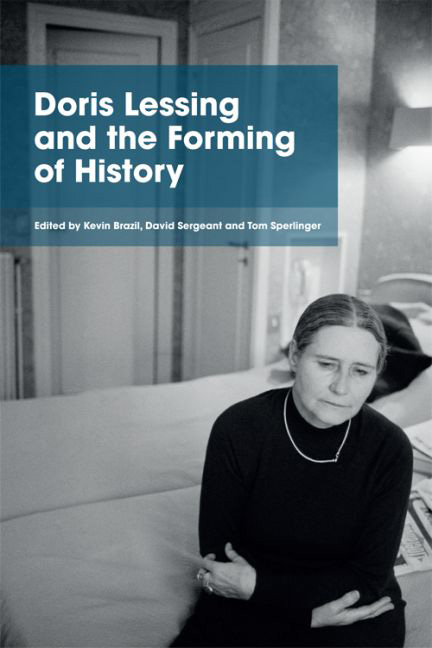Book contents
- Frontmatter
- Contents
- Acknowledgements
- Timeline
- Introduction
- 1 Early Lessing, Commitment, the World
- 2 ‘I'm an adolescent. And that's how I'm going to stay’: Lessing and Youth Culture 1956–1962
- 3 Sequence, Series and Character in Children of Violence
- 4 The Politics of Form: The Golden Notebook and Women's Radical Literary Tradition
- 5 Readers of Fiction and Readers in Fiction: Readership and The Golden Notebook
- 6 From The Grass is Singing to The Golden Notebook: Film, Literature and Psychoanalysis
- 7 ‘funny thing laughter, what's it for?’: Humour and Form in Lessing's Fiction,A
- 8 Lessing and the Scale of Environmental Crisis
- 9 Lessing and Time Travel
- 10 Lessing's Interruptions
- 11 Lessing's Witness Literature
- 12 A Catastrophic Universe: Lessing, Posthumanism and Deep History
- Select Bibliography
- Notes on Contributors
- Index
9 - Lessing and Time Travel
Published online by Cambridge University Press: 26 May 2017
- Frontmatter
- Contents
- Acknowledgements
- Timeline
- Introduction
- 1 Early Lessing, Commitment, the World
- 2 ‘I'm an adolescent. And that's how I'm going to stay’: Lessing and Youth Culture 1956–1962
- 3 Sequence, Series and Character in Children of Violence
- 4 The Politics of Form: The Golden Notebook and Women's Radical Literary Tradition
- 5 Readers of Fiction and Readers in Fiction: Readership and The Golden Notebook
- 6 From The Grass is Singing to The Golden Notebook: Film, Literature and Psychoanalysis
- 7 ‘funny thing laughter, what's it for?’: Humour and Form in Lessing's Fiction,A
- 8 Lessing and the Scale of Environmental Crisis
- 9 Lessing and Time Travel
- 10 Lessing's Interruptions
- 11 Lessing's Witness Literature
- 12 A Catastrophic Universe: Lessing, Posthumanism and Deep History
- Select Bibliography
- Notes on Contributors
- Index
Summary
To speak of time travel is immediately to become involved in conundrums and paradoxes. I won't attempt to list them here, but one is perhaps particularly important. What could it possibly mean, we might ask, not to be travelling through time? Time travel is what we all do, and most usually we do it – or we think we do it – lineally. We regard yesterday as the past, tomorrow as the future. Under strange circumstances, this might not be what happens at all. Under conditions of trauma, for example, it might seem that the past is constantly revisited. In the realm of dream, we may encounter different arrangements of time. Freud (to whom I will briefly return) established his difference from conventional theories of dream – of which there have been many, spanning millennia – by suggesting, indeed, insisting, that dreams were not omens; in other words, they did not predict the future. In a strict sense, he may have been right; in other ways, he may have been wrong. ‘I have a dream’, said Martin Luther King in 1963, and it seems at least arguable that he was prophetic. ‘I had this dream’, says a person in the grip of psychosis; and lo and behold, he or she goes forth and proceeds to act on this dream. Are these omens? Well, perhaps not sensu stricto, but they play a part in organising the future. Whatever the notion of ‘future’ means; and I shall come back to that. ‘Back’, one might say, ‘to the future’ what might that really mean?
Doris Lessing's work, although this may at first seem counter-intuitive, can be understood as centrally concerned with time travel. As other chapters in this volume show, Lessing was profoundly interested in questions of scale, from narrating personal history to the histories of civilisations. I propose to follow the theme of time travel, as an expansion of those questions, by looking, first and mainly, at The Memoirs of a Survivor (1974), and then, more briefly, at Shikasta (1979) and The Marriages between Zones Three, Four and Five (1980) – although something about time travel could no doubt be demonstrated in other Lessing texts, for example The Fifth Child (1988) and The Cleft(2007).
- Type
- Chapter
- Information
- Doris Lessing and the Forming of History , pp. 128 - 136Publisher: Edinburgh University PressPrint publication year: 2016



